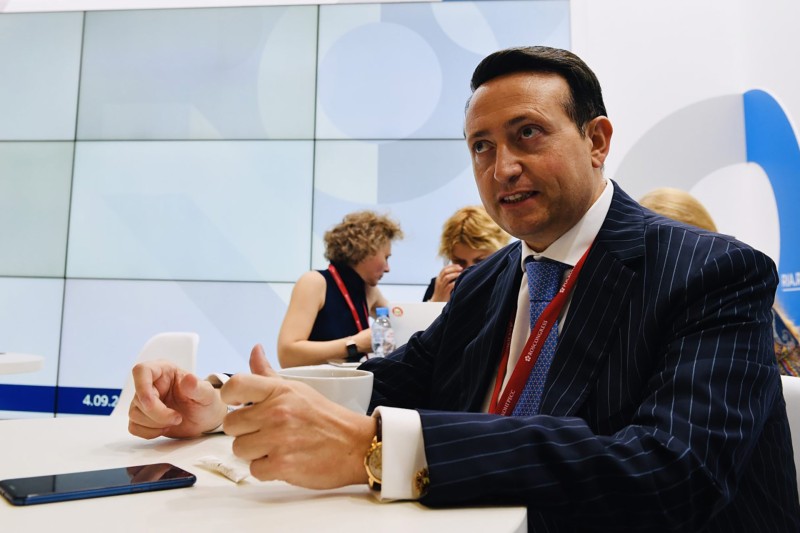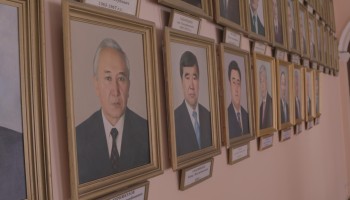“Going to well-known places, where economic growth is not that high, I always thought this limits your opportunities,” said Vincenzo Trani in his strongly accented but animated Russian.
The 47-year-old Italian businessman was explaining in a high-profile interview on a Russian state channel why he decided to come to the country 20 years ago.
“Finding a country that has ... not the best reputation, but where I can make more and better use of my experience?” he said. “That’s much more interesting.”
Trani has been successful in Russia. After first working for the European Bank for Reconstruction and Development (EBRD), he founded a popular car sharing company and a small business lender, among other endeavors. He also owns companies — mostly microlenders and car sharing services — in other “interesting” places, including Belarus and Kyrgyzstan.
One of his latest investments was the purchase of a large stake in a microfinance lender in Tajikistan. He bought into the company, he explained in another interview, because it focused on helping women entrepreneurs in the majority-Muslim Central Asian country.
In fact, OCCRP has found, Trani’s investment involved forcing out the two Tajik women who founded the company. He bought out their nonprofit foundation against their will — with the support of Jamoliddin Nuraliev, who is the son-in-law of Tajikistan’s president and the deputy head of its national bank.
Trani knows many other influential people.
An old friend of his, who has served on the board of one of his companies, has since become Italy’s Undersecretary of State for European Affairs.
Trani has also been associated with Pavel Borodin, a Russian politician who was a top official for the Union of Russia and Belarus, a supranational body meant to encourage closer economic and political ties between the two countries. Borodin is said to have helped Trani enter the Belarusian market, where he has a leasing business.
Trani has had official connections in Belarus, too: For years, he served as the country’s honorary consul to Naples, the city of his birth.
But while Trani’s titles and connections are public enough, his corporate structures do not lend themselves to easy oversight.
Trani’s Russian car sharing service, multiple leasing companies, and now a portion of Imon are all part of a larger structure based in Luxembourg called Mikro Kapital Group.
They are owned by Mikro Kapital’s so-called “securitization funds” — loosely regulated financial vehicles that trade on the advertised profitability of Trani’s businesses to borrow many millions of dollars.
They do this by selling bonds and other debt instruments with attractive interest rates of up to 11 percent to private investors whose identities are never revealed, making it impossible to know the origin of the money.
According to Mikro Kapital’s financial statements, the money he raises this way is practically the only source of funding for Trani’s investments.
An analysis of the statements also shows that Mikro Kapital frequently engages in large intra-group transactions, including large loans between entities, for no obvious commercial reason and with no explanation provided. Its companies are sometimes transferred between various funds and subject to inexplicable revaluations.
In one especially puzzling case, a single Mikro Kapital company was owned by three of the group’s securitization funds over two years, with its value changing up and down by over $20 million in that period.
In response to reporters’ questions about Mikro Kapital, Trani wrote that the company’s financial data is “compiled with the support of three global auditors and two international leading independent valuation firms,” that its “due diligence is performed regularly by the most important and trusted global financial institutions,” and that it “operates in line with all legal requirements and international best practices” in terms of transparency. He emphasized that Mikro Kapital fully adheres to European anti-money-laundering rules when accepting private investment and that the fund operates “in sustainable finance.”
With reporting by IRPI.






